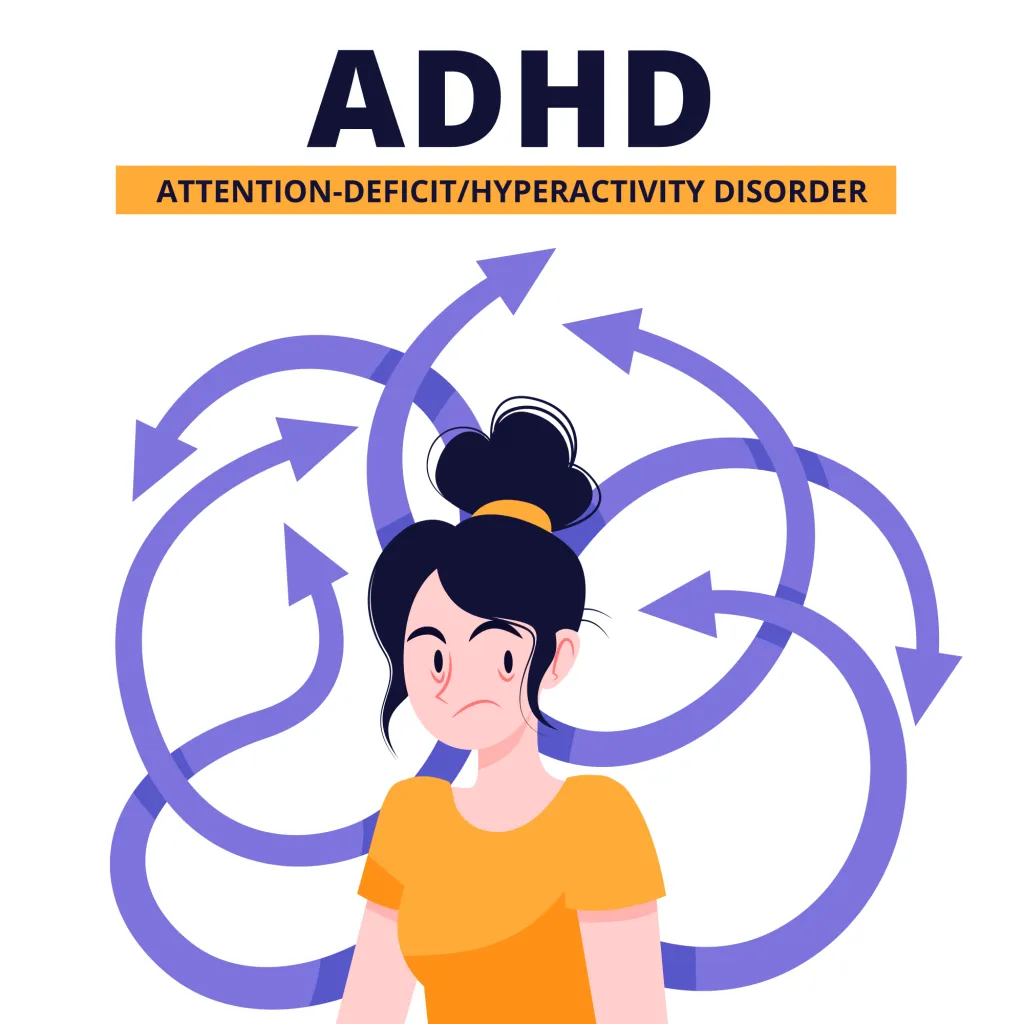A Complete Guide to ADHD Medications for Adults

Navigating pharmaceutical therapy for individuals with attention-deficit hyperactivity disorder (ADHD) can be difficult and confusing. It could be difficult to select the best prescription for your situation because there are so many possibilities.
Your medical practitioner should be able to answer your questions in addition to writing prescriptions. The purpose of this guide to adult ADHD medication is to help you get familiar with the most common drug substitutes that are available to you.
Table of contentshide
Considerations for using stimulants
Typical stimulant categories
Choices for amphetamines with extended and brief half-lives
Methylphenidate options include both short- and long-acting forms.
Common side effects of stimulants in ADHD patients
ADHD medication without stimulants
Non-stimulant ADHD medication
options for ADHD medications without stimulants
Common side effects from SNRI therapy for ADHD
Common side effects of blood pressure medicine for ADHD
Antidepressants for Adult ADHD
What You Should Understand About ADHD and Antidepressants Choices of Antidepressant Medication
ADHD-related side effects of antidepressants
What are the medication options for adult ADHD?
Although stimulants are the most often given family of medications for ADHD, you have other options as well. Other pharmacological options include non-stimulants and antidepressants (which aren’t just for depression, despite their name). Let’s look at your choices and the benefits and drawbacks of each kind.
Stimulant medications for ADHD
For adult ADHD, psychostimulants—also referred to as stimulants—are the most often prescribed medication class. Two examples of the neurotransmitters that stimulants increase in the brain are dopamine and norepinephrine. Because ADHD is related with low dopamine levels, stimulants are frequently quite helpful. Stimulants help with issues like impulsivity, hyperactivity, and inattention. Prescriptions for stimulant medications are rather common since they are often the most effective in treating adult ADHD. Another reason why a lot of people prefer them is that they act instantaneously, so you can choose to take them as needed rather than everyday.
What you should know about stimulants
There are a few crucial factors to take into account if you’re considering about treating your ADHD with a stimulant medication.
Stimulants are the most commonly recommended medication for individuals with ADHD, and their efficacy varies from 70% to 80%.
As instructed by your physician, take your medication exactly as prescribed.
Stimulants for ADHD are Class I medications that have the potential to become addictive. Although stimulant medications for ADHD have the potential to be abused, research has not shown that using them raises the risk of addiction.
Recreational stimulants and prescription stimulants have different formulas and effects, thus they shouldn’t be taken interchangeably.
Usually, stimulant medications are started at a low dose and increased as needed.
The advantages of these drugs typically end after you stop using them. Their long-term benefits are not supported by any data.
Common types of stimulants
You can choose to take them daily, solely on workdays, or only when absolutely required.
Typical stimulant types used to treat ADHD include amphetamines, methylphenidate, and its derivatives. There are stimulants that act both quickly and gradually.
Transient stimulants: People may use short-acting medications several times a day. They start working in around thirty to forty-five minutes and labor for three to six hours a day.
Stimulants with extended release: People take long-acting stimulants once a day. They have different coatings that reduce the rate at which the active ingredients are absorbed, but they nevertheless have the same ingredients as their counterparts with short half-lives. Only a portion of your dosage will take effect immediately; the remainder will continue to function for eight to sixteen hours.
Many people choose long-acting medications since they have fewer side effects and require less frequent doses throughout the day.
Below is a list of the most widely used pharmaceutical brands along with each type’s chemical makeup. Occasionally, the pharmacist will provide you with a generic brand of ADHD medication; in this instance, the name may alter but the chemical makeup remains the same.
Options for both long- and short-acting amphetamines
Short-acting and long-acting amphetamines options
Short-acting Amphetamines
Adderall, also known as levoamphetamine-dextroamphetamine (dextroamphetamine) Dexedrine
Long-acting Amphetamines
Comprising of levoamphetamine and dextroamphetamine XR Adderall.
Élidexamfetamine, also known as vyvanse
Dexedrine XR, also known as dextroamphetamine
Short-acting and long-acting methylphenidate options
The most commonly prescribed short- and long-acting methylphenidate dosages for ADHD are as follows:
Transient Methylphenols
Long-half-life methylphenidates, like ritalin LA/XR or ritalin methylamine
Concerta methylphenidate
These medications are most commonly found as pills, but several are also available as liquids or patches.
Common side effects of stimulants in adults with ADHD
Some of the most common side effects of stimulant medication for adult ADHD include:
dry mouth
Headache
Not being hungry
gaining less weight problems sleeping
upset tummy
increased blood pressure or heart rate
Nerves or anxiety
Irritability (may manifest only after the medication’s effects wear off)
Rare but more serious side effects include:
Heart attack or stroke
seizures
Abuse or reliance
Mood swings or psychosis
Discoloration of the skin rare allergic reactions
Serotonin syndrome while taking dietary supplements like St. John’s wort
Let the prescribing doctor know if you have any adverse effects. They can assess whether what you’re experiencing is normal and, if necessary, modify the dosage.
Are stimulant ADHD drugs addictive?
Stimulant medications meant to treat ADHD can become addictive if taken overly. Overdosing, going beyond authorized dosage limits, and mixing them with other stimulants and recreational substances are risk factors for abuse and addiction. In general, it does not seem that using stimulant medications as recommended for ADHD increases the risk of developing a substance use disorder.
Several studies have shown that taking medication for ADHD actually reduces the likelihood of developing a substance use disorder. Your symptoms are probably under better control now, which reduces the likelihood of self-medication.







